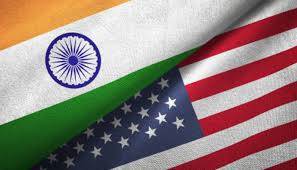US State Department official response on Khalistan Referendum
Shares

State Department Spokesperson Matthew Miller skillfully sidestepped inquiries about the United States' stance on the Khalistan referendum while underlining the importance of a comprehensive and impartial investigation into the assassination of Sikh separatist leader Hardeep Singh Nijjar. During a press briefing, when pressed for a response regarding the US position on the Khalistan referendum organized by Sikhs for Justice, Miller chose his words cautiously, remarking, "Let me revisit that question as well."
The same journalist, during a White House press conference, sought clarification on India's designation of another Khalistani leader and US citizen, Gurpatwant Singh Pannun, as a terrorist and a most-wanted individual. Concerns loomed over Pannun's safety, given fears that he might become the next target of the Indian government, following Nijjar's tragic assassination. In response, Miller chose not to provide specific commentary, opting instead to reiterate the Secretary's recent remarks emphasizing the United States' concern about transnational repression, a policy that the US has reiterated on numerous occasions.
Expanding on the topic, Miller delved into the assassination of Hardeep Singh Nijjar, which had garnered international attention. Canada's Prime Minister, Justin Trudeau, had publicly alleged Indian involvement in Nijjar's killing. This raised profound questions about the tactics employed by the Narendra Modi-led Indian government to suppress dissent even on foreign soil.
The incident cast a spotlight on the complexities of international relations and the delicate balance the United States had to maintain, navigating its relationships with both India and Sikh separatist groups.
In essence, the State Department's measured responses revealed the United States' cautious approach to sensitive geopolitical issues, where it aimed to uphold its commitment to human rights and civil liberties while navigating a complex web of international relations.
The matter of the Khalistan referendum remained a diplomatic tightrope, with the US emphasizing the need for a fair investigation into Nijjar's assassination and treading carefully to avoid taking a definitive stance that could upset its relations with India.
